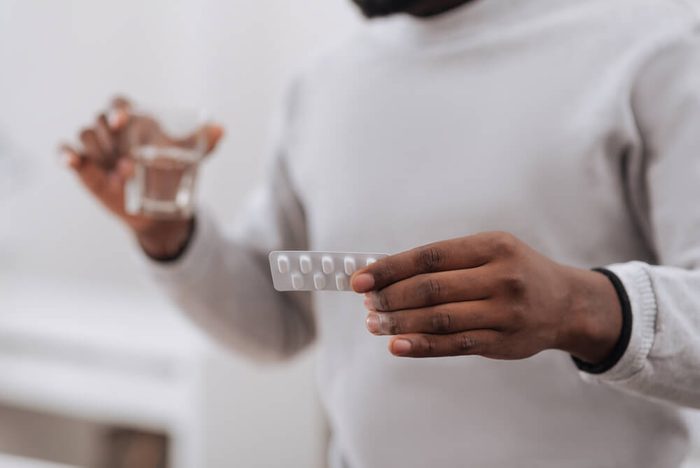Surprising risks of sunburn
The weather is getting warmer and the sunny days are stretching out longer and longer. This is also a good time to restock on sunscreen (if you haven’t already) to protect yourself against skin damage and skin cancer. But, practicing sun safety to reduce the risk of sunburn does not stop at applying sunscreen.
There are several surprising things that can actually increase sun sensitivity or your risk of sunburn. From medications to the foods you eat, depending on the ingredients, they can trigger sunburn-like symptoms that will leave your skin itchy, red, and in pain.
To help you avoid these unexpected sunburn triggers, we spoke with dermatologists who weigh in on the most common, yet surprising ones, and what to do about it.
Sunburn risk: You’re taking an antibiotic
One of the most common medications prescribed by dermatologists for acne is an antibiotic called tetracycline. It’s also one oral medication that makes skin more sun-sensitive and likely to burn, says Elizabeth K. Hale, MD, clinical associate professor of Dermatology, NYU Langone Medical Center and senior vice president at the Skin Cancer Foundation. Another antibiotic that leaves you sun-sensitive: Doxycycline, which people take for severe acne or Lyme disease. Before beginning a new medication, especially an antibiotic, ask your doctor or pharmacist if it comes with these skin side effects. Check out these weird ways your body changes after just a single sunburn.
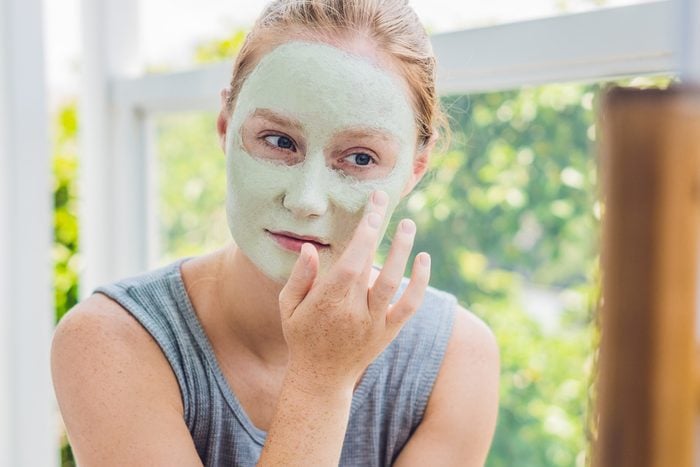
Sunburn risk: You’re loving your new exfoliating mask
It’s nice to remove dead cells on the surface of your skin and reveal a more youthful glow underneath. The downside is that exfoliating away that layer removes natural sun protection, “rendering skin more sensitive to the sun,” says Kenneth Mark, MD, a cosmetic dermatologist and Mohs skin cancer surgeon (a surgical technique for treating two common types of skin cancer) practicing in New York City. Exfoliating masks, chemical peels, and microdermabrasion can all have this effect. If you use these products, double down on your commitment to applying sunscreen every morning.
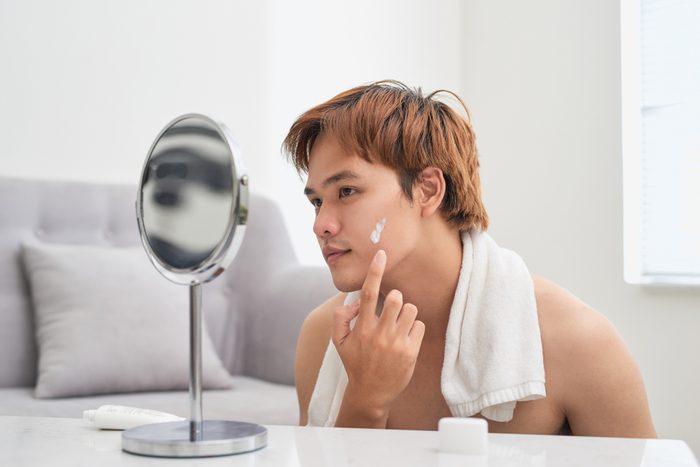
Sunburn risk: You’re using a retinoid in summer
Prescription-strength retinoids can keep your pores clear and your skin healthy, but they can also make you more likely to burn. Going off them completely in the summer is one option, but it isn’t necessary. Instead, you can use an over-the-counter retinol (which is lower potency) during the warmer months, says Dr. Hale. But keep that sunscreen handy. “If you’re not going to wear sunscreen, you have no business using any of these in the summer,” she says. Don’t miss these sunscreen mistakes you may be making.

Sunburn risk: You’re drinking a margarita
Heading for an outdoor happy hour? Cover up if you’re ordering a margarita or vodka soda with lime. Lime or citrus juices can trigger a phototoxic reaction, says Michele Farber, MD, a dermatologist at Schweiger Dermatology Group in New York City. This happens when certain chemicals (like those in citrus) are activated by the sun and damage skin—you could end up with discoloration on your lips or hands. “This is something I see when people come back from summer vacation,” Dr. Farber says.
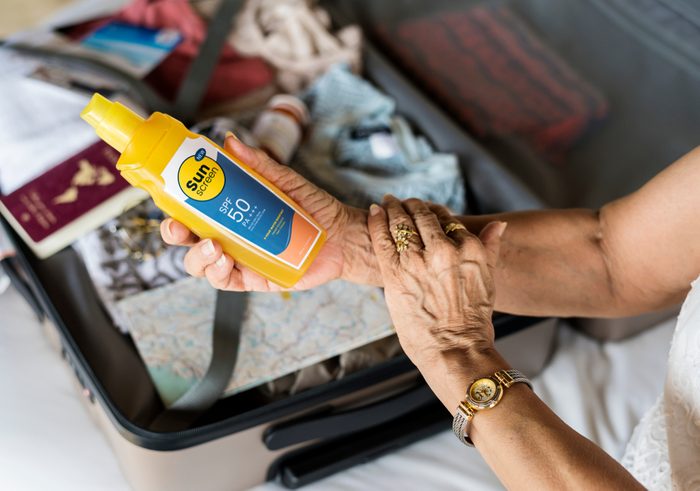
Sunburn risk: Your SPF is too low
It may surprise you to learn that an SPF 15 shields against 95 percent of UVB rays, while an SPF 30 is effective against 97 or 98 percent, says Dr. Hale. That difference may seem small, but it’s critical. “Everyone under-applies,” she says. (You should apply a shot glass-sized amount to your whole body.) That’s why Dr. Hale recommends patients use an SPF 30 or 50, as higher numbers will help make up for not applying enough, she says. And note that wearing SPF in your makeup is not enough protection as those are usually SPF 15 or less. Before you buy, decode sunscreen label meanings with this guide.
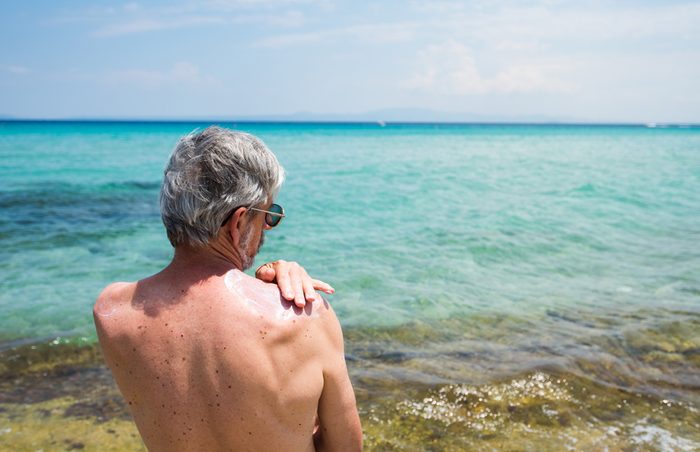
Sunburn risk: You forgot to reapply sunscreen
Fun in the sun means reapplying SPF every two hours; even more often if you’re sweating or swimming, says Dr. Mark. You can train yourself into the habit of reapplying sunscreen regularly by setting a two-hour timer on your phone when you plan to be at the beach or outdoors; also, every time you use your towel (to dry off), grab your bottle of sunscreen. This will help ensure that your skin has the protection it needs. If you forget to reapply and get a nasty sunburn, try one of these unusual sunburn remedies that actually work.

Sunburn risk: You believe clouds protect you from the sun
On a cloudy day, you don’t really need the SPF, right? After all, your skin doesn’t feel like its sizzling when you’re out. Wrong. “Clouds offer a false sense of security. You can still burn on cloudy days,” says Dr. Mark. Indeed, 40 percent of UV rays penetrate through clouds, according to the Skin Cancer Foundation. “What’s worse, you may feel less hot and stay exposed longer than you otherwise would,” Dr. Mark says. Break out that SPF no matter what.

Sunburn risk: You’re heading to the beach at noon
There’s nothing like a beach day. But consider going earlier or later—or at least packing a beach umbrella. It’s best to stay out of the sun when rays are the strongest—between 10 a.m. and 2 p.m., says Dr. Farber. If you’re out, practice all the key sun safety habits, like wearing at least an SPF 30 sunscreen and reapplying it every two hours. Seek shade and wear a wide-brimmed hat and sunglasses for added protection. While you’re at it, watch out for these scary diseases you can catch at the beach.
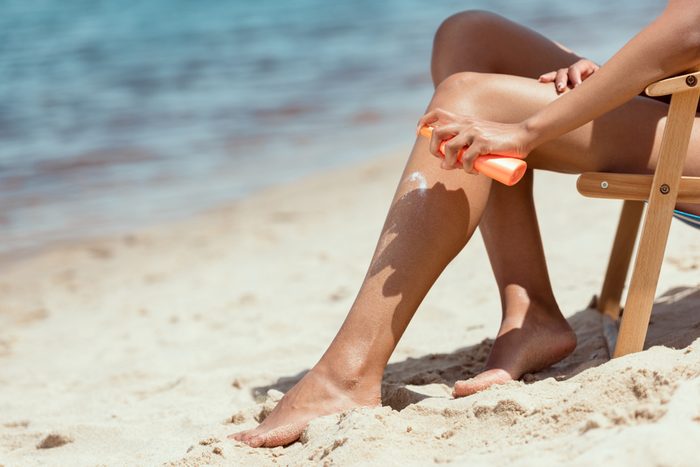
Sunburn risk: You’re using spray sunscreen
Ever get home and notice a weird zigzag sunburn pattern on your back? Blame your spray sunscreen. Although convenient, spray sunscreens make it too easy to miss spots or entire sections. One way to get around it: “If you use a spray, make sure you rub it in thoroughly,” says Dr. Farber. Dermatologists prefer cream formulas—here’s how to find the best sunscreen option for you.
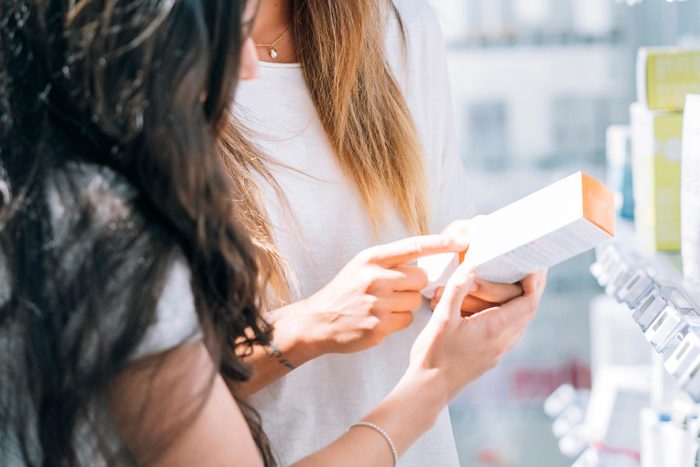
Sunburn risk: Your sunscreen expired
Ideally, if you’re applying the right amount, a bottle of sunscreen shouldn’t last beyond a season anyway. Another reason not to have leftovers? Sunscreen does expire. According to the American Academy of Dermatology, the Food and Drug Administration requires that all sunscreens are good for three years; beyond that, they may not protect you. Before applying that old bottle, look for the expiration date—if it’s past its prime, throw it out.
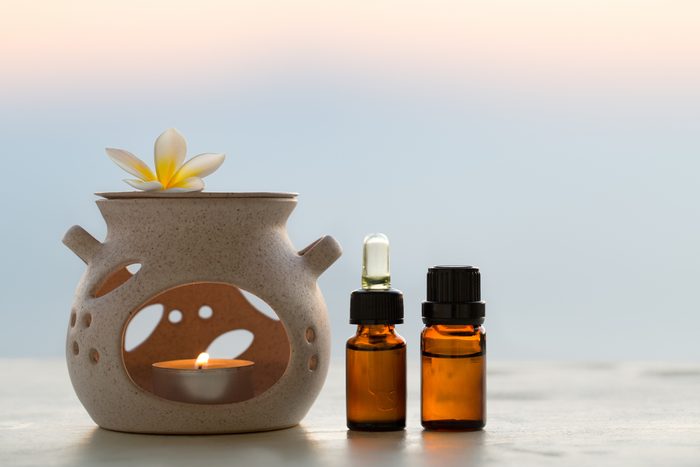
Sunburn risk: You used essential oils this morning
It’s not just what you eat: Some essential oils contain chemical compounds that make a sunburn more likely, according to the American College of Healthcare Sciences. They’re often the citrus oils, including bergamot peel, grapefruit peel, lime peel, and lemon peel. The health organization advises avoiding direct sun exposure for a minimum of 12 hours after using. The group’s advice: “Do not use these oils at all if there is any chance of being exposed to UV light.” These are the myths about sunburn that are damaging your skin.
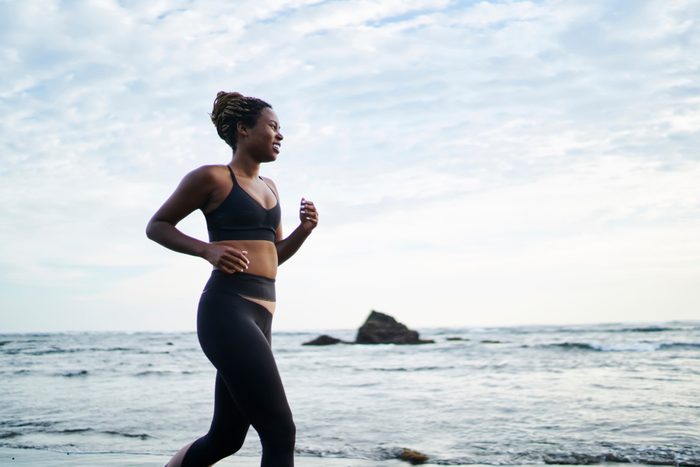
Don’t fear the sun
Yes, there are a dozen things on this list that can prime you for a sunburn—an unpleasant and risky outcome. But it does you no good to fear the sun—summer offers plenty of opportunities to get out, enjoy the fresh air, and be more active. “Live your life—just make sure you’re covering your skin appropriately,” says Dr. Farber. Next, learn the sunscreen dos and don’ts dermatologists wish you knew.


